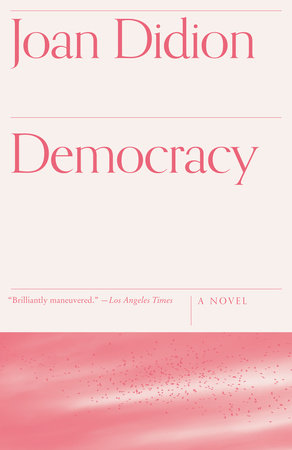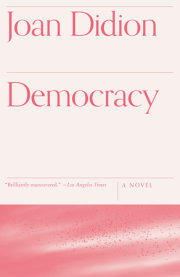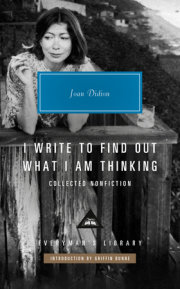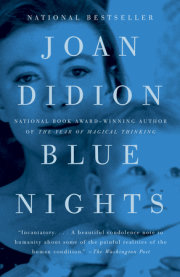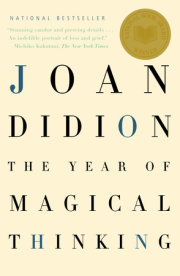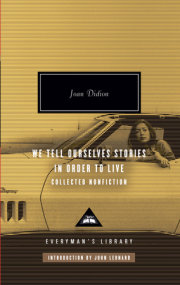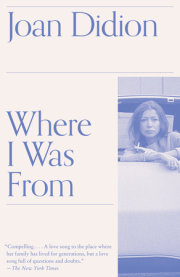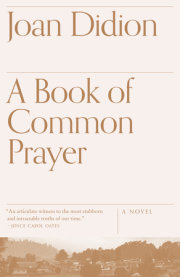JOAN DIDION was born in Sacramento in 1934 and graduated from the University of California, Berkeley, in 1956. After graduation, Didion moved to New York and began working for
Vogue, which led to her career as a journalist and writer. Didion published her first novel,
Run River, in 1963. Didion’s other novels include
A Book of Common Prayer (1977),
Democracy (1984), and
The Last Thing He Wanted (1996).
Didion’s first volume of essays,
Slouching Towards Bethlehem, was published in 1968, and her second,
The White Album, was published in 1979. Her nonfiction works include
Salvador (1983),
Miami (1987),
After Henry (1992),
Political Fictions (2001),
Where I Was From (2003),
We Tell Ourselves Stories in Order to Live (2006),
Blue Nights (2011),
South and West (2017) and
Let Me Tell You What I Mean (2021). Her memoir
The Year of Magical Thinking won the National Book Award for Nonfiction in 2005.
In 2005, Didion was awarded the American Academy of Arts & Letters Gold Medal in Criticism and Belles Letters. In 2007, she was awarded the National Book Foundation’s Medal for Distinguished Contribution to American Letters. A portion of National Book Foundation citation read: "An incisive observer of American politics and culture for more than forty-five years, Didion’s distinctive blend of spare, elegant prose and fierce intelligence has earned her books a place in the canon of American literature as well as the admiration of generations of writers and journalists.” In 2013, she was awarded a National Medal of Arts and Humanities by President Barack Obama, and the PEN Center USA’s Lifetime Achievement Award.
Didion said of her writing: "I write entirely to find out what I’m thinking, what I’m looking at, what I see and what it means.” She died in December 2021.
View titles by Joan Didion

